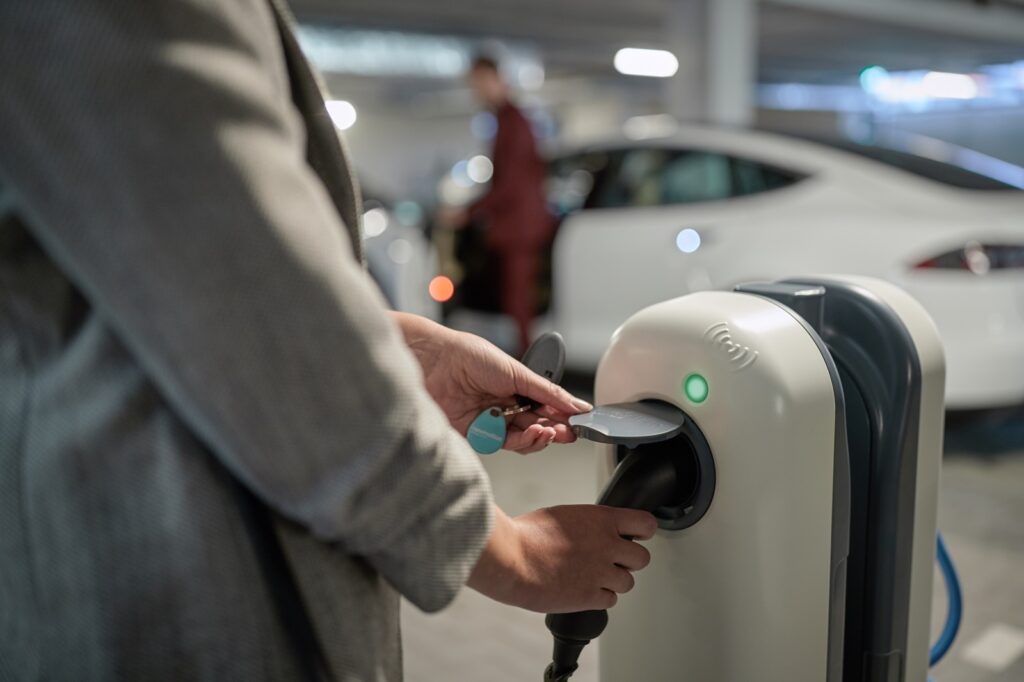The importance of smart charging has been identified as part of a survey conducted by NewMotion that found one in six UK drivers agree it is key to encouraging further electric vehicle (EV) adoption.
The survey had 10,000 respondents from the UK, Germany, France, the Netherlands and Belgium, although only 510 of these were from the UK. In addition to the positive response to smart charging as a whole, across the five countries 73% of respondents would be willing to delay a charging session to help prevent an energy demand peak and 67% would be interested in the financial benefits of using an EV battery to help support renewables.
When it comes to where drivers charge in the UK, personal chargepoints come out on top with 72% of UK respondents having one installed. However, this was very closely followed by on-street charging, which is used by 47% of UK drivers. Additionally, the Netherlands (50%) and the UK (44%) lead the way in workplace charge point availability, with this closely followed by France (38%) and Belgium (38%).
On-street charging is an oft heralded solution for those without private parking, with companies such as Siemens rolling out the technology across more urban areas like London and the government announcing in February that the On-Street Residential Chargepoint Scheme (ORCS) will continue into 2021/22 with a £20 million funding boost.
However, a panel of experts at the Everything EV Summit in April concluded that more data on people’s habits and how that impacts demand is needed to develop on-street charging that works for everyone.
Another area looked at in NewMotion’s survey was roaming, with the UK historically not having significant levels of integration between charging networks compared to Europe. However, the survey found that across the five countries only 15% of drivers now need 4+ charge cards, down from 24% in 2020, with Alan McCleave, regional manager UK and Nordics at NewMotion stating he believes the UK “will move towards full roaming”.
Indeed, a number of partnerships and services bringing together charging networks have been launched in recent years, with NewMotion alone having roaming partnerships with 19 different networks.
Reducing the number of cards required to charge came out as a measure that could improve the charging experience, with 36% of respondents agreeing with this. However, faster charging was a key measure that could improve the experience, with 52% of respondents and 41% of UK respondents agreeing.
Increased levels of public chargepoints was also highlighted as a way of improving the experience, with 48% of respondents and 41% of UK respondents agreeing.
In the UK, ways to increase EV uptake included expanding the awareness about the environmental benefits, with 40% putting this in their top three, followed by better chargepoint availability (36%) and better range of the vehicles themselves (28%).
This is despite drivers in the UK being more motivated by the financial savings of an EV compared to those in Europe, with 18% citing this as their biggest reason for driving an EV compared to 14%. However, environmental concerns were still the main reason for UK drivers and European alike to make the switch, at 31% and 37% respectively.
McCleave explained that there is “a cultural difference in terms of UK drivers vs the likes of the Nordic countries, who I think have environment higher up on their priority list”.
Other findings of the survey include the integration of smart technologies, with 30% of respondents ranking the idea of integrating home charging with at-home renewables such as solar panels as the most exciting.
Wireless charging, however, was ranked lowly, with a full third of drivers placing it as the least exciting innovation in the list.
Melanie Lane, CEO of NewMotion, said that a “new profile of EV driver has emerged” in the driver survey.
“These drivers believe that e-mobility is the future, but better access to charging infrastructure remains crucial for the next stage of EV adoption. We’re pleased to see that there is a high willingness for smart charging, since this plays an important role in making the switch to electric.”






